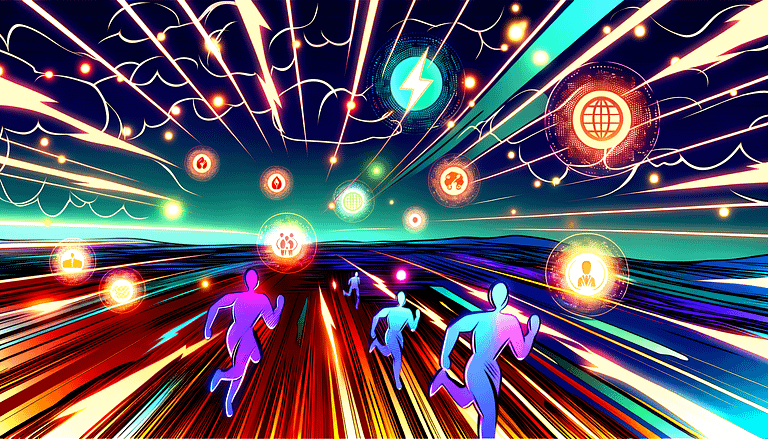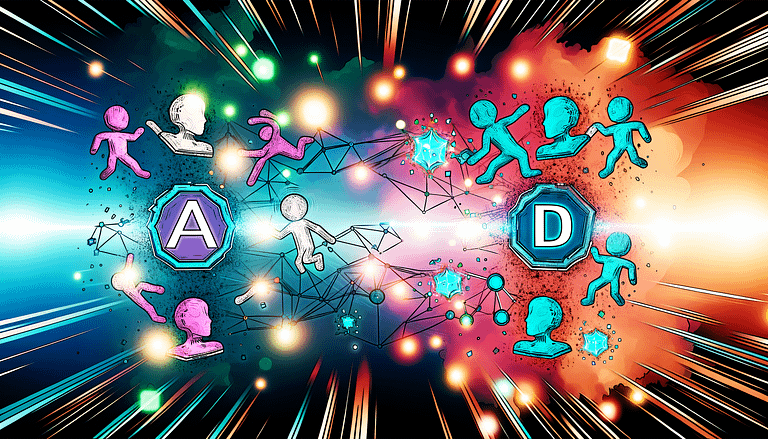Microsoft Unveils AoT: Next-Gen AI Mimics Human Thinking
In A Nutshell
Algorithm of Thoughts (AoT) represents a significant leap in artificial intelligence (AI), introducing an approach where large language models (LLMs) mimic human-like thinking to solve complex problems more efficiently. Developed by Microsoft Research, AoT combines intuitive understanding and algorithmic precision, enabling AI to dynamically adjust reasoning based on context. This innovation promises to enhance AI’s adaptability, efficiency, and problem-solving capabilities, surpassing traditional models in various aspects.
Deciphering Algorithm of Thoughts
AoT stands as a novel paradigm in AI, specifically designed to improve the reasoning abilities of LLMs. Unlike previous methods that often required external intervention, AoT integrates the capacity for nuanced reasoning directly into LLMs, allowing them to navigate through problem spaces with a human-like thought process. This capability is illustrated through strategies ranging from basic prompting to the more advanced Algorithm of Thoughts, signifying a progression toward a structured yet flexible approach to problem-solving.
Advantages of AoT Over Conventional Methods
The innovation of AoT lies in its transparent and adaptable reasoning process, which significantly outperforms the opaque and rigid nature of prior LLMs. By enabling dynamic adjustment to reasoning based on the context and allowing for the exploration of multiple paths, AoT models can tackle complex tasks with greater speed and accuracy. Furthermore, these models are capable of learning in context, offering a more generalizable and versatile solution for real-world applications.
Applications Shaping the Future
From accelerating drug discovery in scientific research to enhancing software development and optimizing supply chains, AoT’s potential applications are vast. Its ability to process and analyze extensive data sets can drive innovation, efficiency, and decision-making across multiple industries, marking a step forward in the use of AI to solve real-world challenges.
Assessing AoT’s Challenges and Limitations
Despite its potential, AoT faces challenges such as elevated computational demands and sensitivity to input quality. The subjective nature of evaluating humanlike reasoning and the ethical implications of its misuse also pose significant hurdles. Addressing these challenges will be crucial for the widespread adoption and responsible use of AoT.
Ethical Implications in Focus
The deployment of AoT necessitates a careful examination of ethical considerations, including misuse, bias, accountability, and the necessity for transparency. Establishing clear ethical guidelines and accountability structures is imperative to mitigate risks associated with AoT’s capabilities and to ensure its beneficial impact on society.
The Road Ahead for AoT
The trajectory of AoT is poised to redefine AI’s capabilities in language understanding, problem-solving, and decision-making. As the technology evolves, so too will the emphasis on addressing ethical concerns to ensure AoT serves the greater good. The integration of AoT into various domains promises not only technological advancements but also a shift towards more responsible and inclusive AI applications.
Our Take
The development of Algorithm of Thoughts marks a watershed moment in the evolution of artificial intelligence. By bridging the gap between human intuition and algorithmic precision, AoT sets a new standard for AI’s problem-solving capabilities. Its potential to revolutionize industries and enhance decision-making processes is immense, yet its success hinges on overcoming computational, ethical, and practical challenges. As we stand on the brink of this new era in AI, it is imperative that we navigate these challenges with foresight, ensuring that AoT’s deployment aligns with societal values and contributes to the betterment of human lives. Embracing AoT responsibly will be key to unlocking its full potential and steering the future of AI toward a more adaptive, efficient, and ethically grounded direction.







